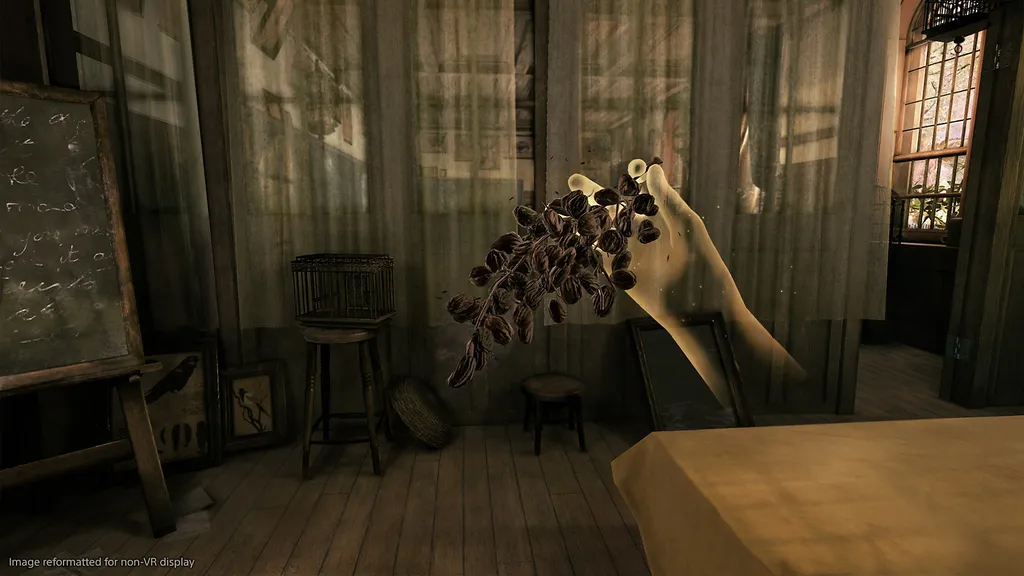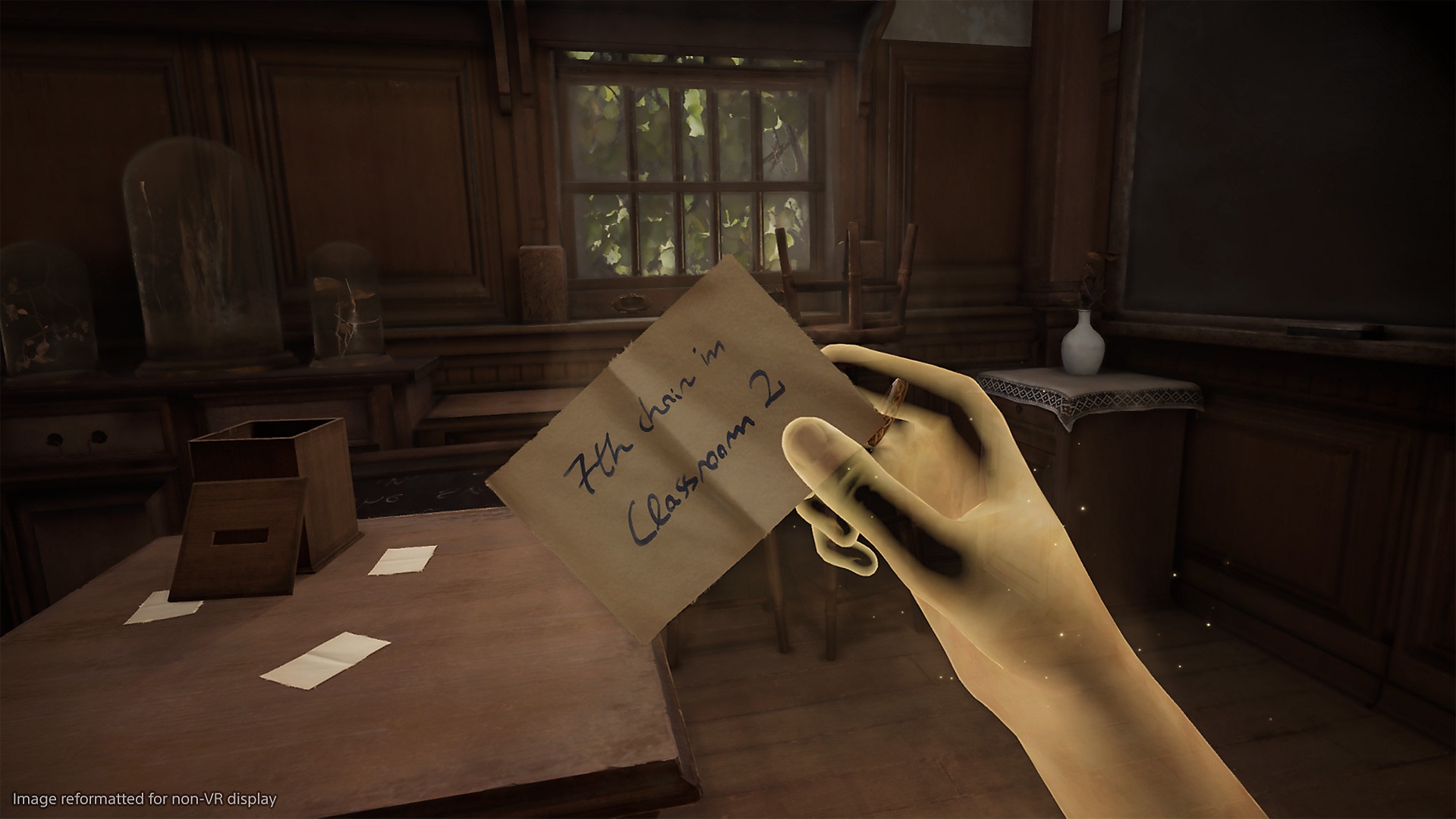At first glance Deracine, the new PlayStation VR (PSVR) exclusive from Dark Souls developer From Software, couldn’t be more different than its acclaimed predecessors. For starters, it trades the murky depths of dark fantasy for a straight-laced and traditional boarding school setting and the pressure-driven combat has been swapped out in favor of exploration-based puzzles.
The cast of characters, meanwhile, aren’t gruesome monsters, turncoat warriors or cowardly hermits, but instead a group of reclusive students, measured in their words and reactions. Though director Hidetaka Miyazaki is heading up the project, Deracine is unlike anything From has produced in the last decade. But a tiny slither of the Dark Souls DNA is in there, as incidental as it may be.
I discovered as much when I recently went hands-on with the game. I got my first Souls-vibe pretty much straight away when the music kicked in. If you’d have told me that its melancholic moaning of violins had been lifted straight out of one of the hub worlds in a Souls game — think of the Hunter’s Dream in Bloodborne — I’d have believed you. In turn, it exudes that same, lonesome atmosphere you get during your downtime in one of those games, only stretched across an entire school.
And yet Deracine looks and feels unlike anything else I’ve seen in VR. It’s like one of Japan’s visual novels given life, knowingly glacial in its proceedings but selling you on its sheer oddness alone. You take on the role of a faerie that paces the halls of the school in suspended time. As you interact with objects students become aware of your surroundings and start to play games with you. There’s something very reserved about it and how polite it is; it’s a period piece for an era and genre often unexplored in gaming. Whether or not audiences will take to that I really can’t say, but I welcome the experiment with open arms.
The cast is another area that scratched my Dark Souls itch. For better and worse, character models all possess that strangely blank, feautreless expression that the human inhabitants of Lordan, Yharnam and the like all carry. You might argue that From’s character models simply don’t hold up to the scrutiny that VR affords, though I’d contest it lends each student a certain mysticism too. The same is true of the game’s purposefully archaic dialogue, which again could just as easily be heard uttered from those that dwell in the misery of a Souls world. It’s strict and eloquent, reflective of the private education and discipline the school would preach, but it also makes the cast — at least in the first two levels — feel somewhat uniform and quaint. I’ll definitely be interested to see if I can grow a stronger bond between them in the full game.
I’m also a little worried that Deracine is going to fall into that trap of being too obscure in its solutions. There’s nothing quite as tiresome in all of VR than being stuck on a puzzle and, while I was guided through the demo to ensure that didn’t happen, there were occasions where objects and solutions seemed so missable I’d have been searching for an age to find them. The game’s cast does drop hints about what you need to be doing, though, so hopefully these will do an effective job of steering you in the right direction. It’d be a great shame to waste this truly unique foundation on the trivial shortcomings so many other VR games suffer from.
There can be little doubt that Deracine is the game Miyazaki intended it to be; it’s too uncompromising in its tone and pacing to argue otherwise. But whether or not this is a side of From Software its fan-base will so readily embrace as it has its numerous action masterpieces remains to be seen. Personally, I think a lot of people are going to be confused by this unexpected turn, but I have to admit that makes me all the more fascinated to get my hands on the end product.



























